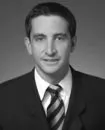Filing fees and other expenses incurred by the prevailing party in a CBM proceeding "are not recoverable" as "costs" under FRCP 54(d), ruled one district judge in the lawsuit Credit Acceptance Corporation v. Westlake Services, LLC et al, C.D. Cal. No. 13-01523.
The plaintiff initiated the lawsuit in 2013 asserting that an online car loan processing tool offered by the defendants infringed the claims of the plaintiff's business method patent. The defendants responded by filing a CBM petition, which ultimately resulted in the PTAB finding several of the claims unpatentable under Section 101. Rather than appealing the PTAB's decision or pursuing patent claims not reviewed by the PTAB, the plaintiff moved to voluntarily dismiss its lawsuit with prejudice.
The defendants subsequently moved for "costs" comprised primarily of its expenses associated with the CBM proceeding, such as the CBM filing fee and deposition expenses. According to the defendants, the CBM expenses "were proximately caused" by the lawsuit. Notably, by the time the issue of costs came to a head, the court had already denied a separate motion for attorney fees under Section 285, finding that the case was not "exceptional."
Turning to the issue of costs, the court first agreed that that the defendants were "prevailing" parties, presumably entitling them to recover at least certain "costs" under FRCP 54(d) and the corresponding local rules for the taxing of costs. The court, however, disagreed that the costs to be taxed under the district court's local rules could include expenses associated with the CBM:
Defendants have not persuaded the Court that filing fees paid to the USPTO as part of CBM petitions should be recoverable under this Court's Local Rules, which expressly provides that "[f] iling fees paid to the Clerk," L.R. 54-3.1. The Court adopts the plain language of the Local Rules and finds that filing fees paid to the USPTO as part of CBM proceedings are not recoverable in this case, particularly where the instant action was not found to be "exceptional" within the meaning of 35 U.S.C. section 285.
Takeaway
Given the absence of direct authority on the subject, it is hard to fault the defendants for seeking to extend the boundaries of recoverable costs to include CBM related expenses. For example, the local rules allowed for recovery of deposition transcript expenses "used for any purpose in connection with the case" -- potentially leaving the window open to include deposition expenses incurred in a closely related PTAB proceeding that effectively replaced the invalidity portion of the district court case.
Still, the result is hardly surprising, particularly given that the court already decided the case was not "exceptional" under 35 U.S.C. § 285. Thus, going forward, prevailing patent defendants in non-"exceptional" cases should not expect to recover as "costs," expenses associated with a parallel CBM proceeding (or IPR proceeding for that matter). Still, defendants should always carefully study the court's local rules on taxation of costs to determine if there is any leeway for a more expansive reading.
The content of this article is intended to provide a general guide to the subject matter. Specialist advice should be sought about your specific circumstances.


